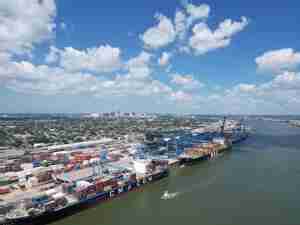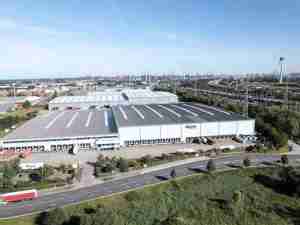Canada port drivers hope for deal ahead of back-to-work law
By: Reuters | Mar 23 2014 at 10:49 PM | Ports & Terminals
A three-week long strike by container truck drivers at Port Metro Vancouver could be nearing an end, with union officials hopeful that a negotiated deal can be reached ahead of plans by the province to legislate drivers back to work early this week.
This as some of the non-union drivers, who walked off the job late last month, returned to their rigs on Friday, after the port threatened to start revoking licenses in an effort to get goods moving again at Canada’s largest port.
“We’d like to get a negotiated resolution and hopefully get our members back to work as soon as possible, by Monday, if possible,” said Gavin McGarrigle of Unifor, Canada’s largest private sector union, which represents the unionized drivers.
He added that the union has reached out to government and employers, but no official talks have been set.
A deal would be good news for companies that depend on the port to ship product to customers around the world, especially lumber producers, who have been hit hard by the disruption.
If a last-minute deal is not reached, the provincial government is expected to introduce legislation next week to force the unionized drivers back to work.
Meanwhile, the non-union drivers say they will remain on strike until their concerns on wait times and pay are addressed, despite the threat of losing their licenses.
“This is a bully tactic to bring us back to work and it’s not going to work,” said Manny Dhillon, a spokesman for the United Truckers Association, a non-profit that represents many of the independent drivers.
Still, Port Metro Vancouver said container truck volumes were at about 40 percent of normal on Friday, hitting their highest level since the strike began more than three weeks ago.
“Our terminals are now seeing steadily growing truck activity demonstrating there are truckers who want to work and are willing to service the gateway,” said Chief Executive Officer Robin Silvester in a statement.
PILES OF CONTAINERS
The job action crippled operations at Vancouver’s four container terminals, slowing the transport of lumber, pulp products and specialty grains, along with consumer goods, and leaving hundreds of containers piled up on port property.
Rick Jeffery, chief executive officer of industry group Coast Forest Products Association, said that if the trucks do not start moving immediately, there will be a serious impact on the province’s resurgent forestry industry, including the potential shutdown of mills where lumber is piling up.
“We’ve already done everything we can in terms of moving shipments to other ports and finding other work-arounds on this,” he said. “It’s expensive and frankly it hurts our reputation. We need this disruption to end now.”
More than a thousand non-union container truck drivers parked their rigs on Feb. 26 in protest over wait times at the port, which they say have increased sharply in recent years, cutting into their profits. The drivers are paid per haul and do not make money while waiting to load and unload cargo.
They are also demanding that set rates, established during a previous strike, be increased and enforced to stop a rampant industry practice of undercutting.
The unionized drivers voted days later to join the strike and officially parked their rigs early last week.
“We’re here on time and ready to work, but we’re stuck waiting,” said Aman Sandher, who has been driving a container truck for about 9 years. “We just want to make a living, that’s why we’re here. We want our fair deal.” (Reporting by Julie Gordon; Editing by Lisa Shumaker)









